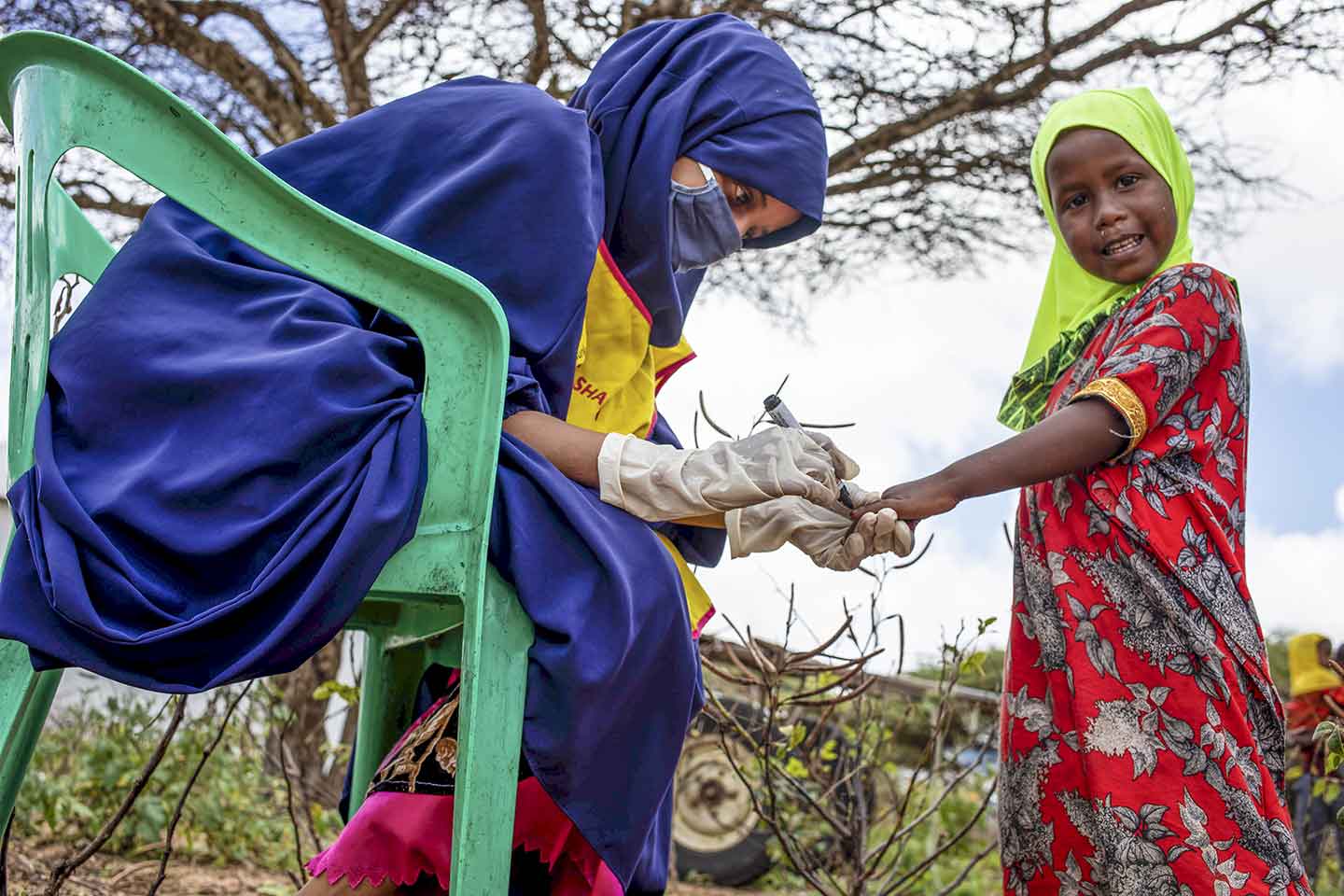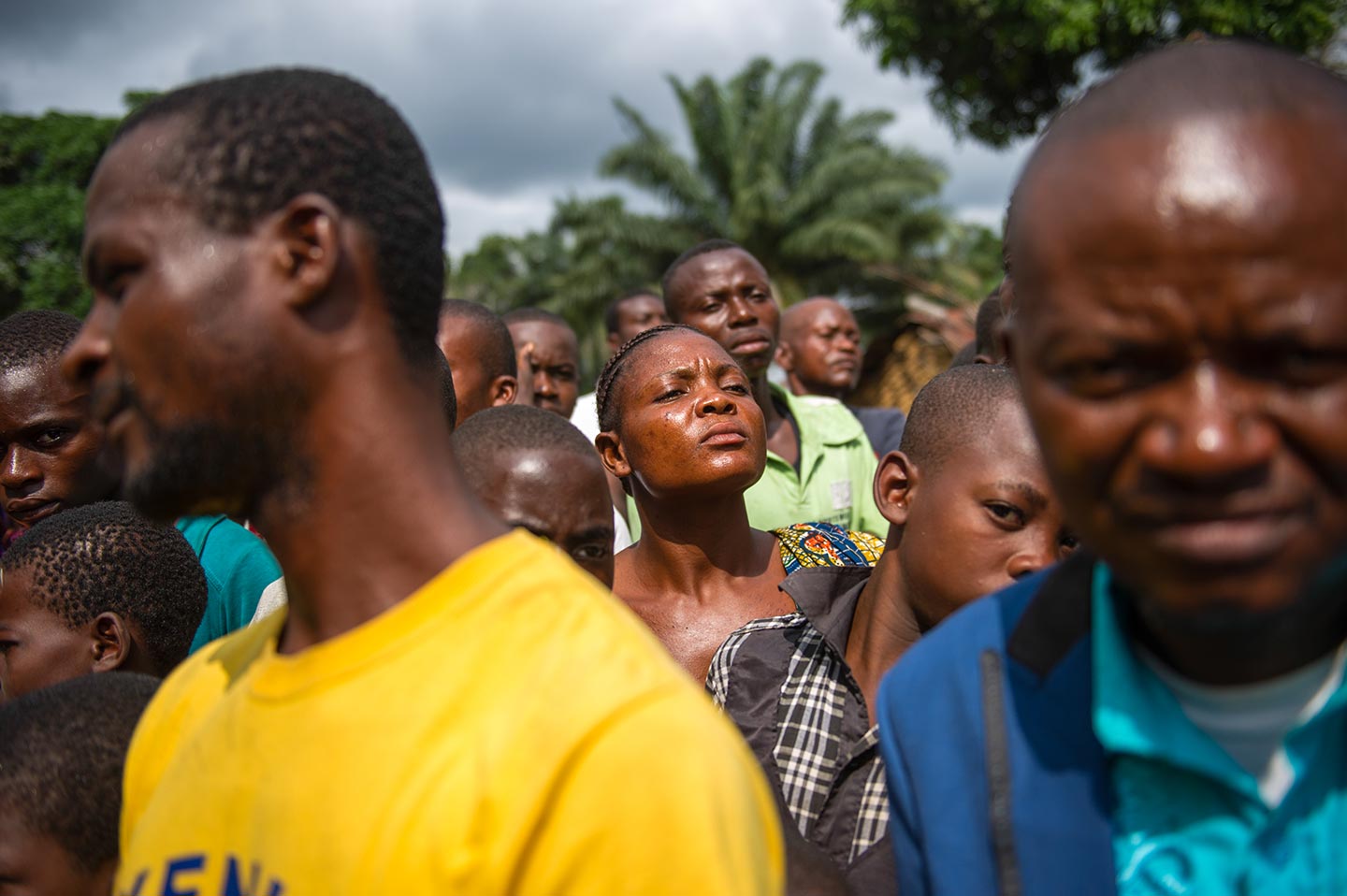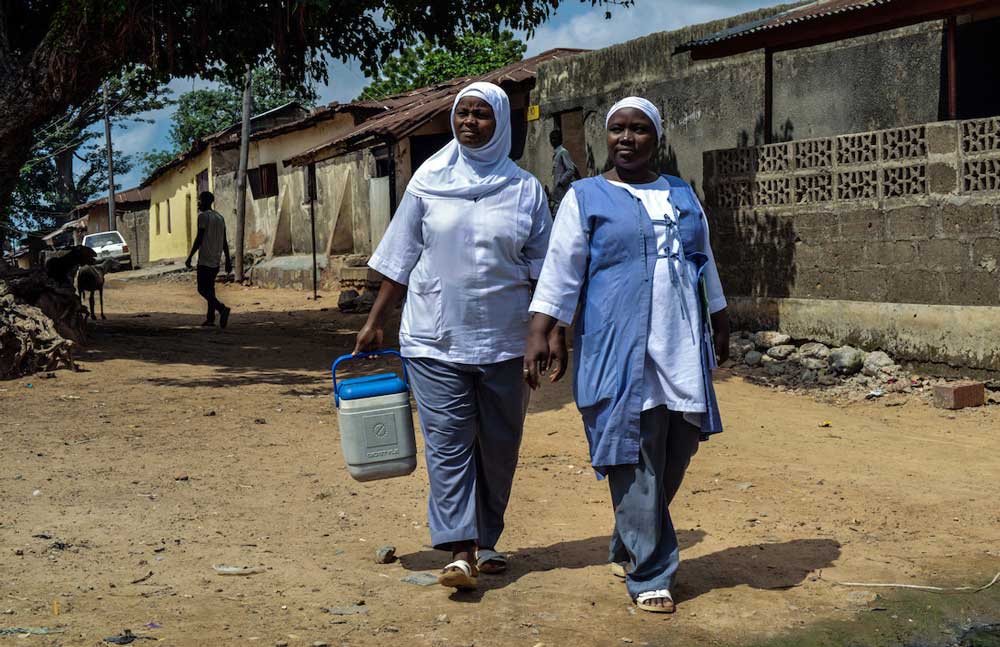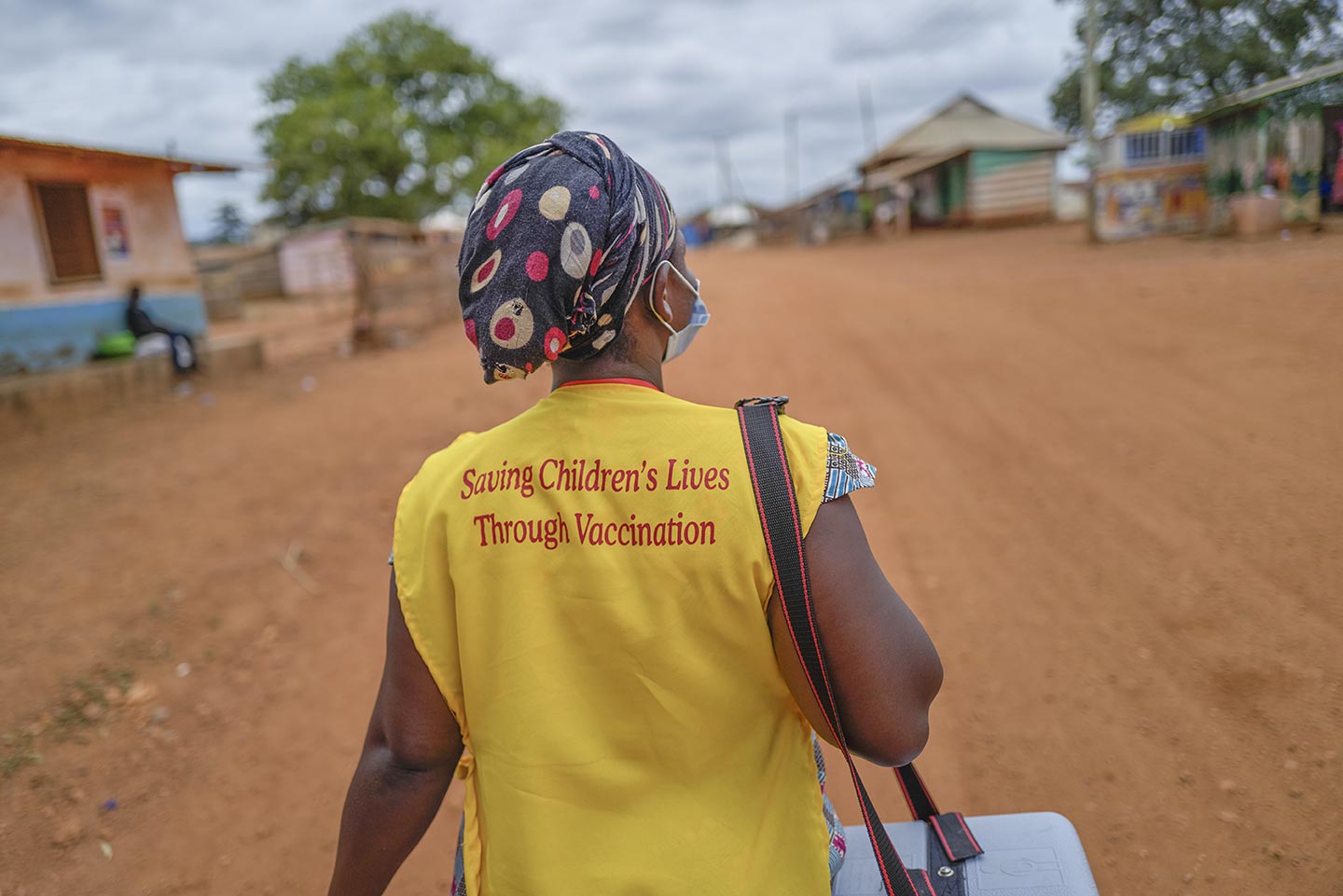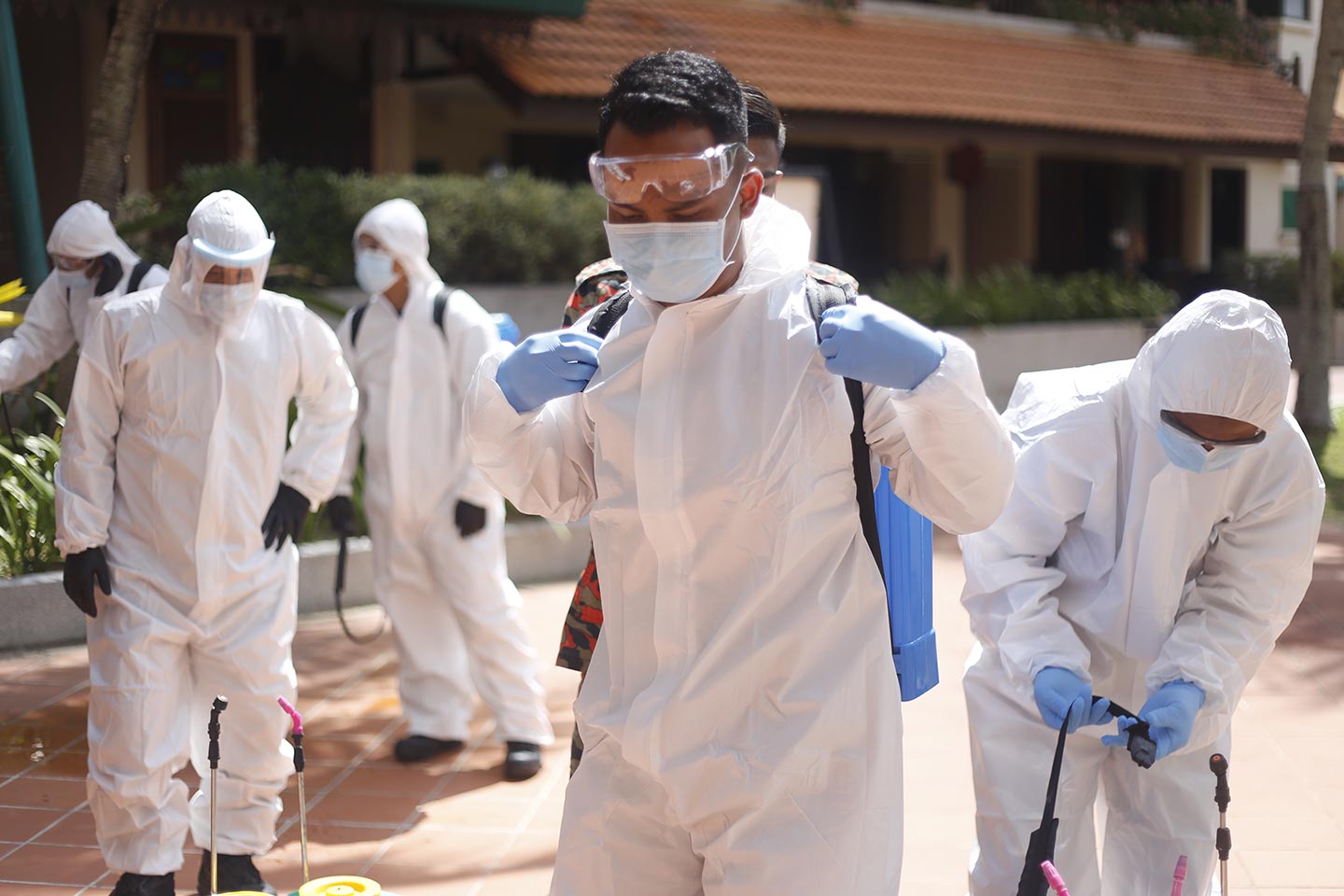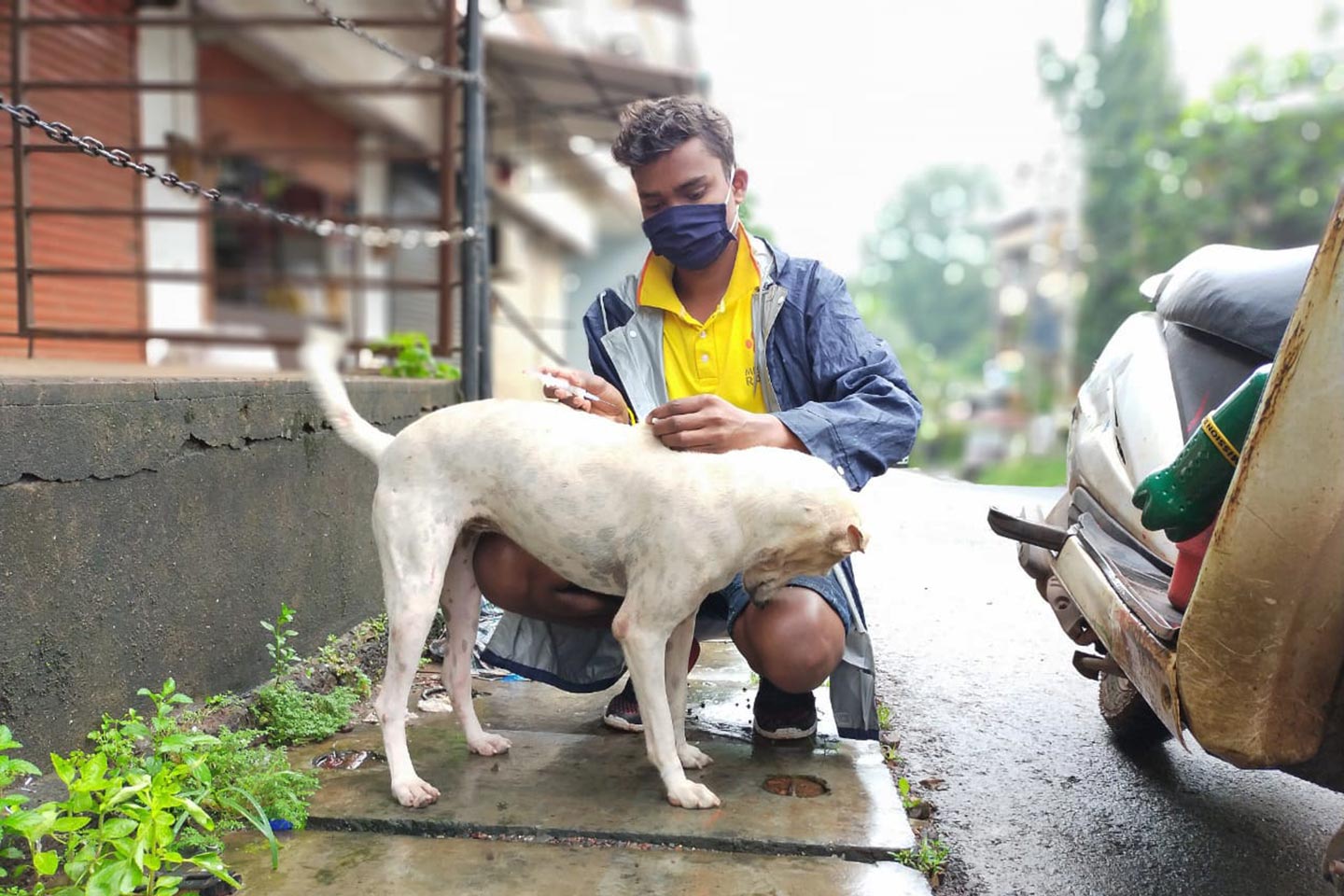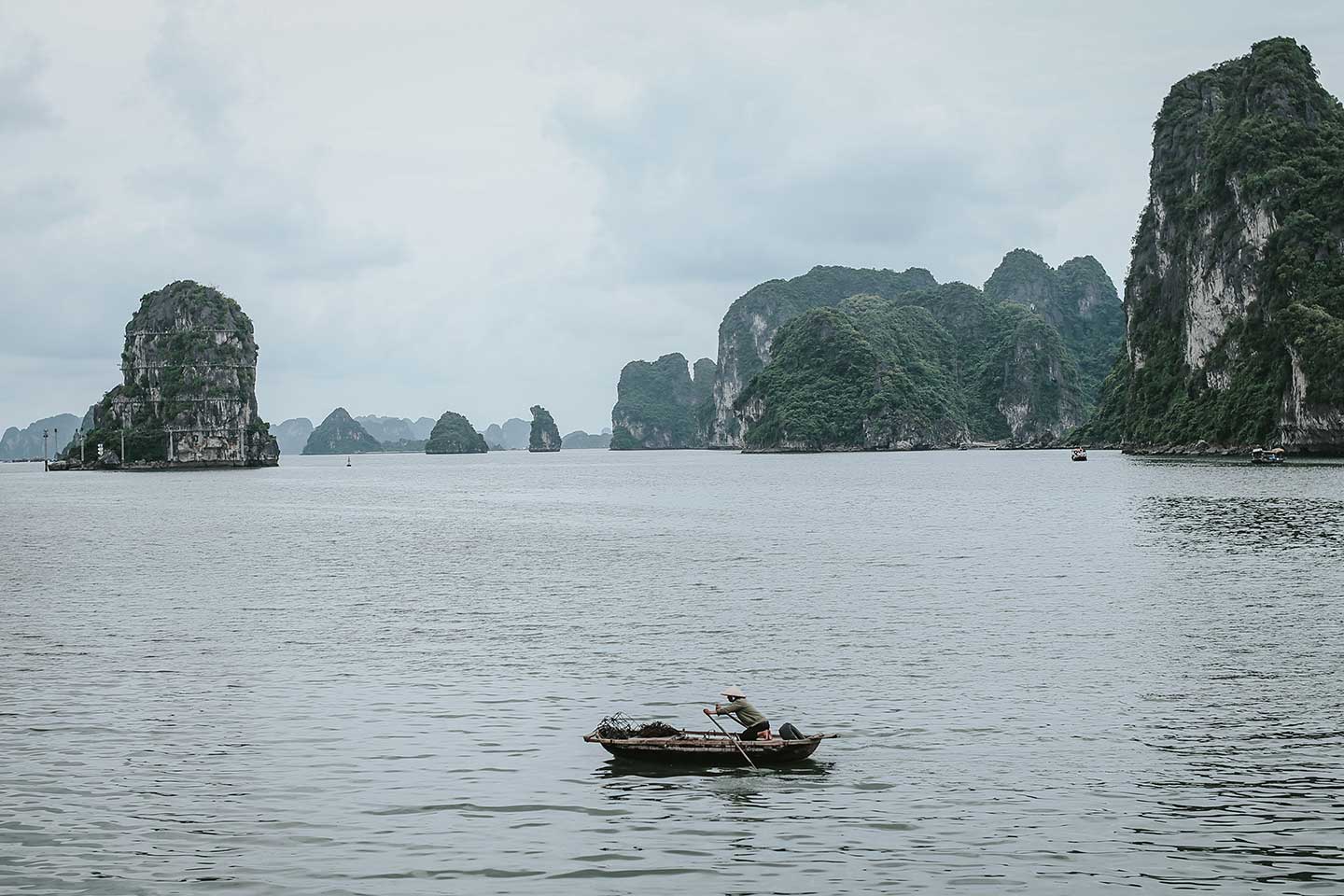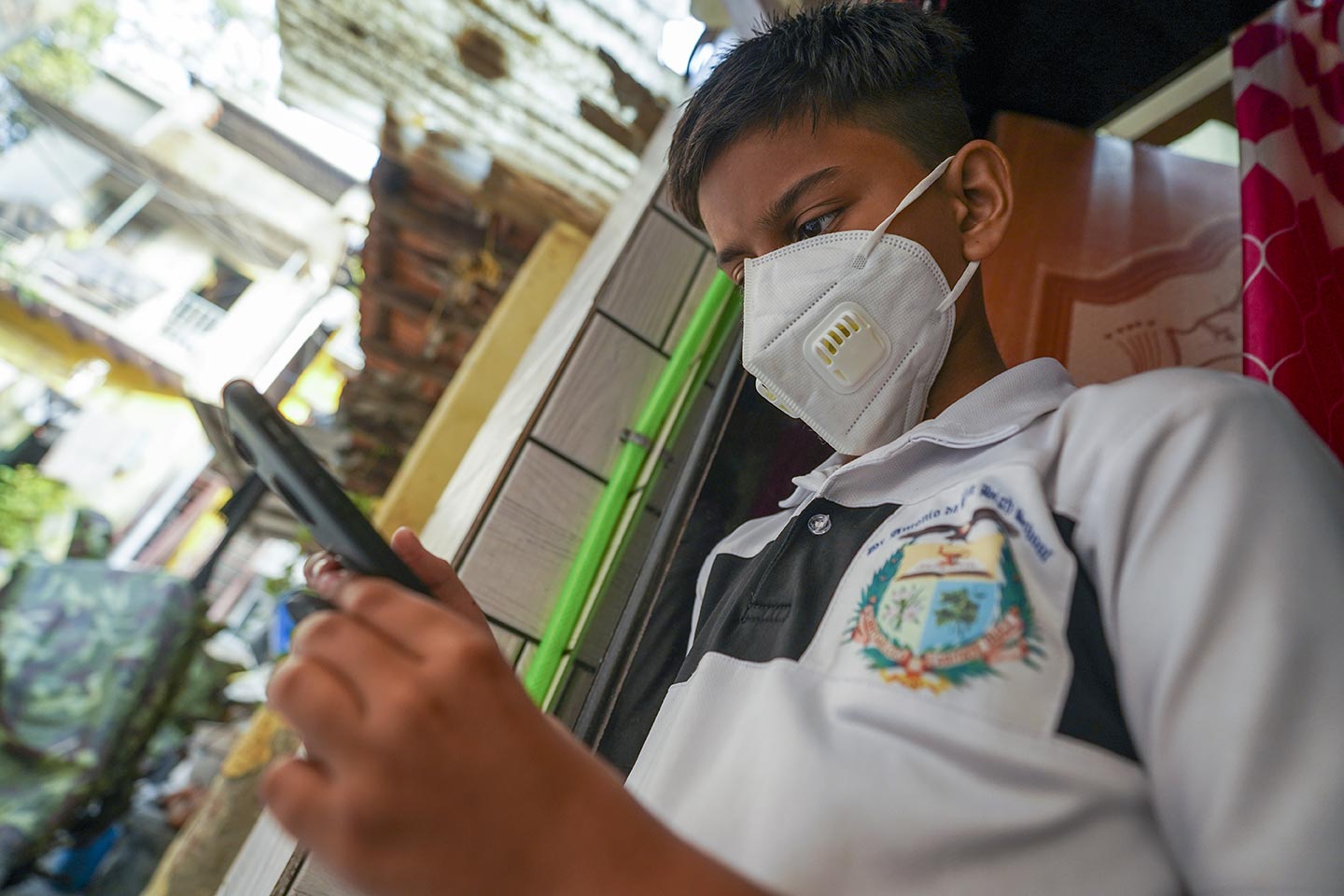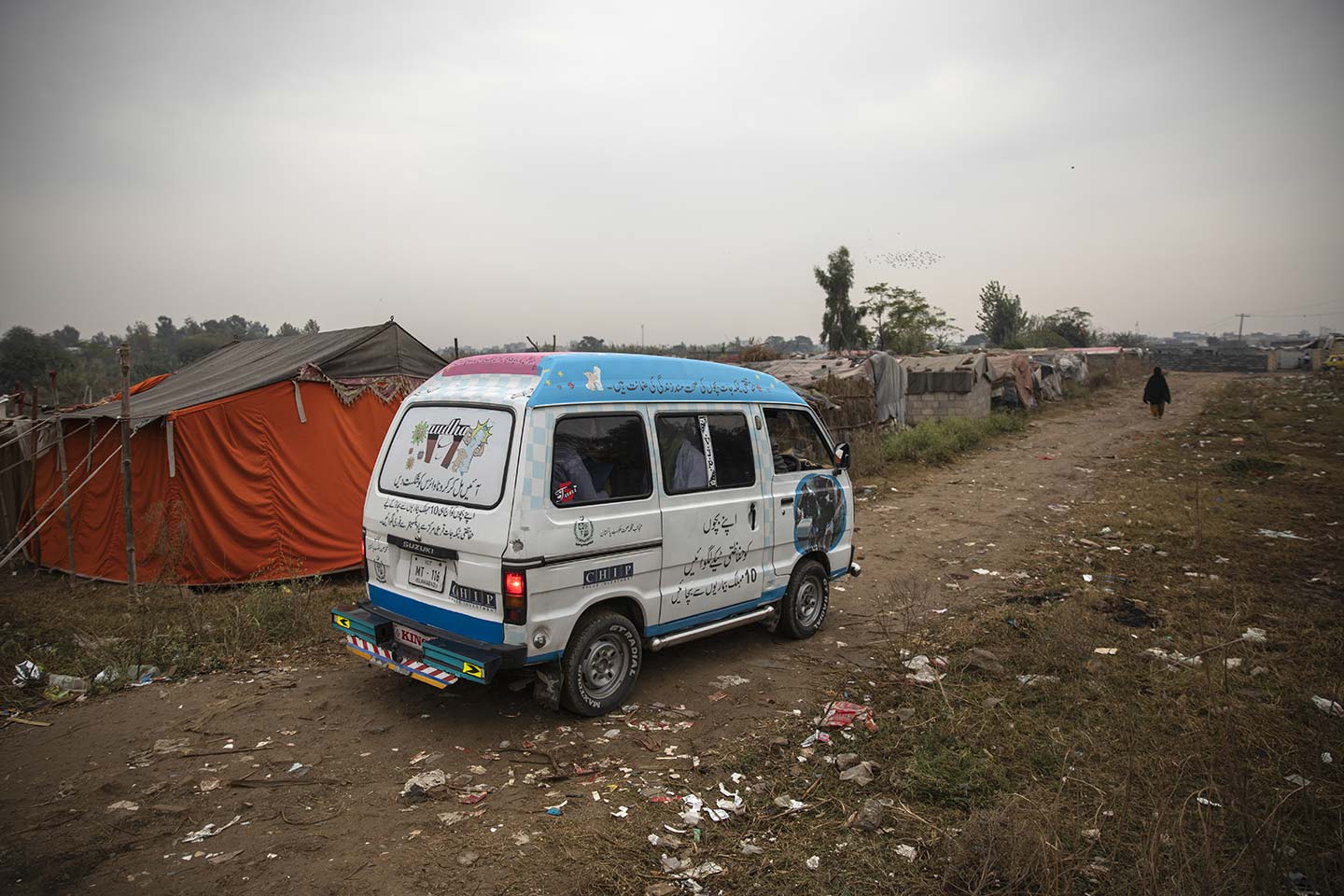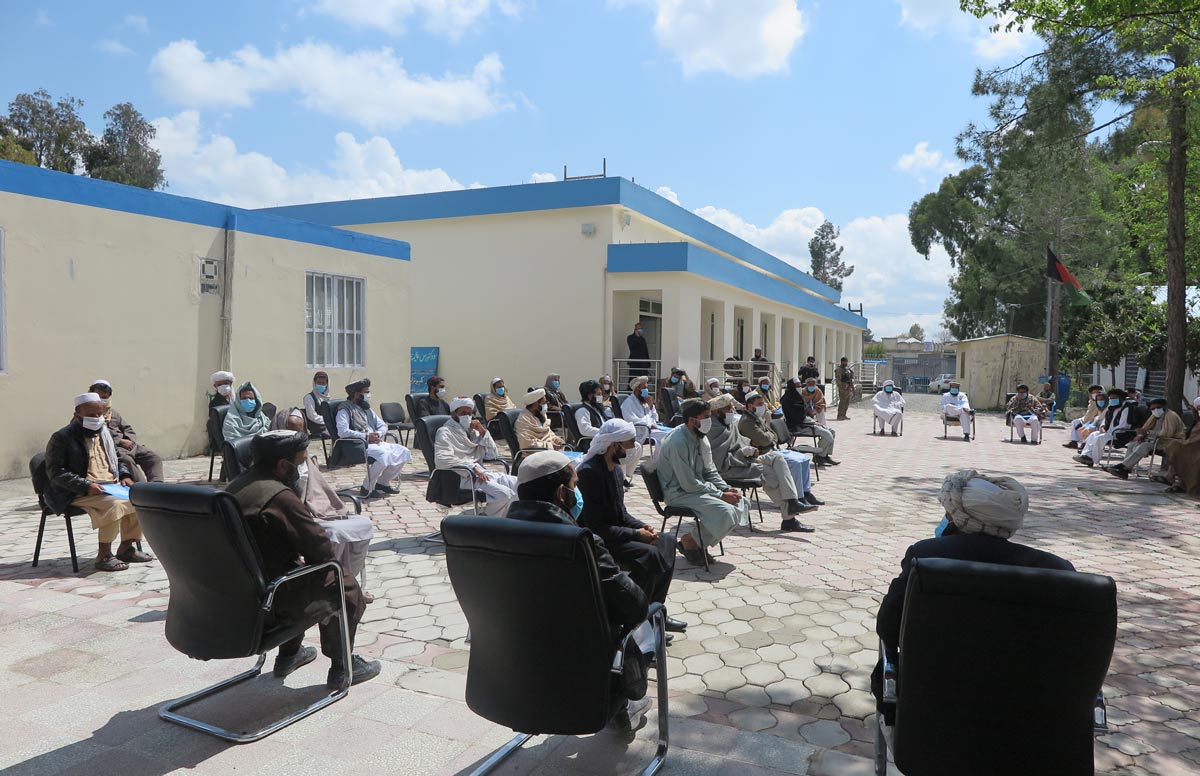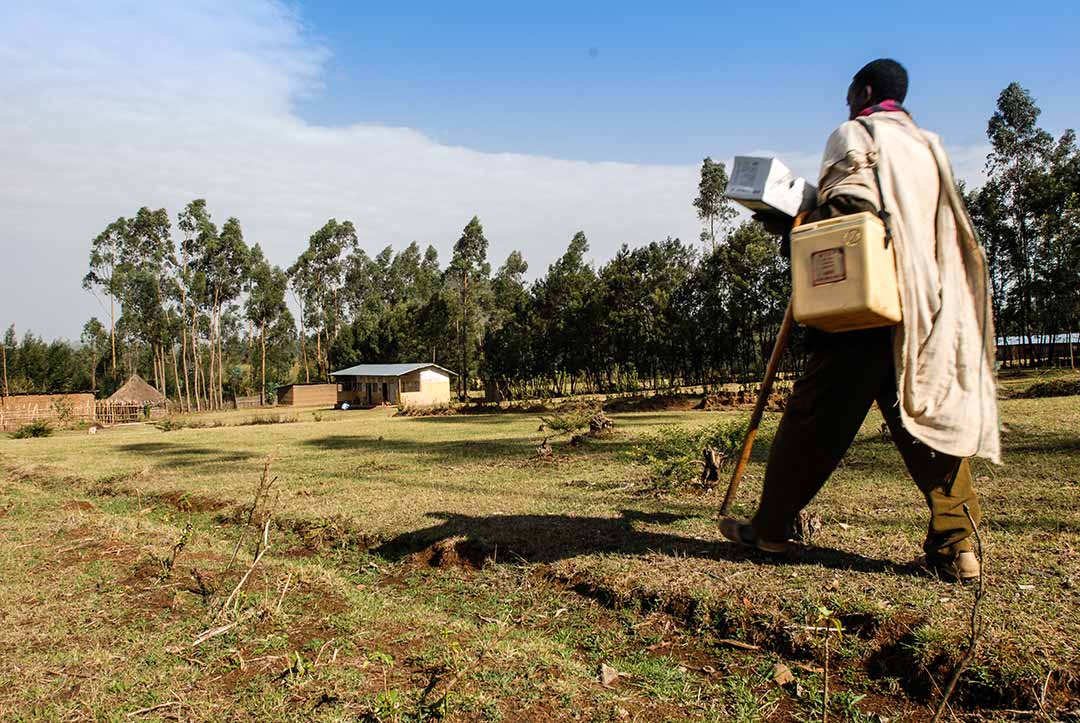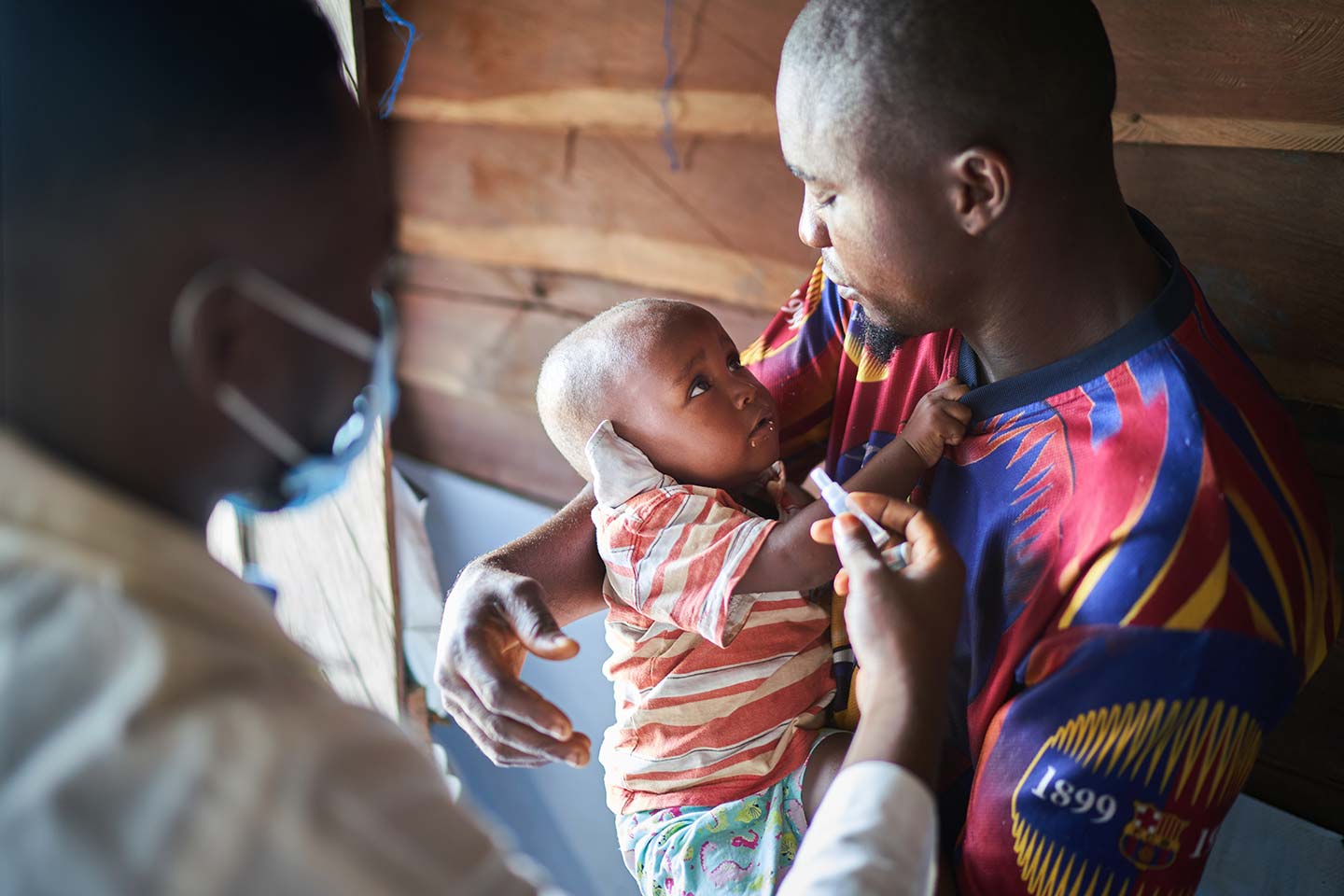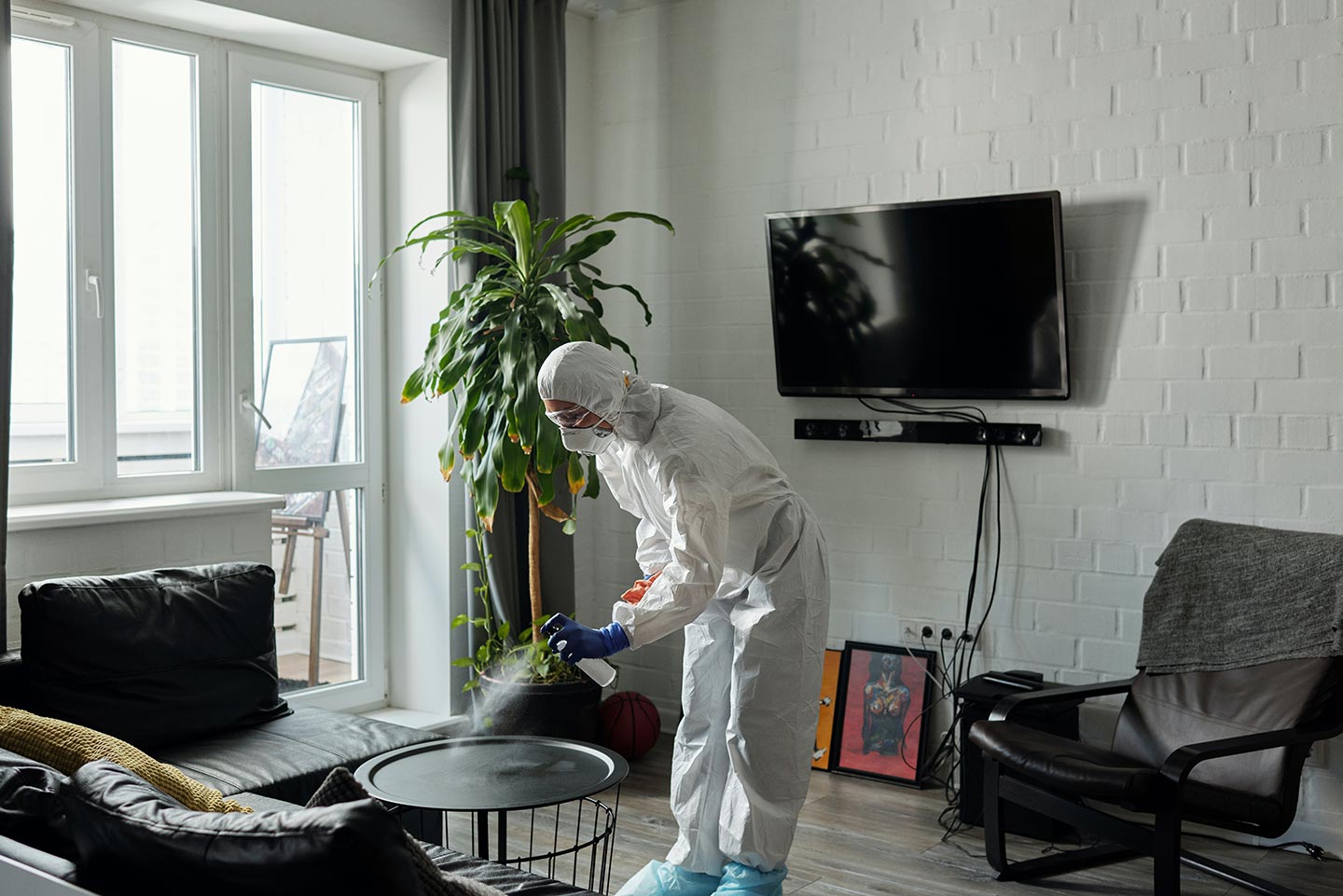A year of #VaccinesWork in 10 articles from around the world
To mark the first anniversary of #VaccinesWork, we look back at some of the most-read articles on how countries have been navigating COVID-19 during an unprecedentedly challenging year for global health.
- 24 March 2021
- 6 min read
- by Tetsekela Anyiam-Osigwe

It’s been one year since the launch of #VaccinesWork and the beginning of emergency responses to the COVID-19 pandemic, including lockdowns, travel restrictions and stay-at-home orders. Today, we cast the spotlight on the various ways in which different countries have responded to not only COVID-19, but also other public health challenges that continue to persist amid the pandemic. The following ten articles published on #VaccinesWork over the past year highlight the varied responses to the unique challenges posed by COVID-19 around the world.
Managing COVID-19
In most countries, national governments and public health officials have faced at least two key challenges since the start of the pandemic. On the one hand, routine immunisation services have been severely disrupted, leaving millions of children without potentially life-saving vaccinations. Transport interruptions, restrictions on internal movement, and heightened fears over contracting COVID-19 in public spaces continue to act as obstacles that prevent or deter countless individuals and families from visiting health clinics.
On the other hand, managing COVID-19 itself presents unique policy challenges to countries. Although many have decided on their containment measures by looking towards those implemented by the first set of affected countries, no two countries are the same. This means that, even as we all now look towards COVID-19 vaccine rollouts to protect populations and stop the spread of the virus, countries will still need to chart their own path in sustainably coping with COVID-19.
Moving forward
These challenges are not impossible to overcome and the progress being made by countries to tackle them contribute to the much larger effort to end the global crisis, so that everyone is safe and healthy both from COVID-19 and other existing diseases. From Guinea dealing with an Ebola outbreak and Ghana launching a polio campaign, to India adapting its digital track and trace systems, here’s how countries around the world are trying to overcome these twin challenges:
1. How Somalia is resuming vaccination campaigns despite COVID-19
Since the pandemic began, many vaccination campaigns have been disrupted because of the risks of spreading COVID-19. This article gives #VaccinesWork readers a glimpse into how, despite these challenges, more than 3,000 health workers in Somalia were able to help launch a campaign to safely vaccinate around 400,000 children against measles and polio.
2. How the Democratic Republic of the Congo overcame the world’s worst measles outbreak amid the COVID-19 pandemic.
Before the pandemic began, the Democratic Republic of the Congo was already facing a severe measles outbreak, which started at the end of 2018. Despite huge challenges caused by COVID-19 and other diseases, the largest measles outbreak in the world ended. Read this article to find out how it happened.
3. How is Nigeria addressing the public health challenges due to COVID-19?
Among Gavi-eligible countries in Africa, Nigeria had one of the highest numbers of COVID-19 cases by the summer of 2020. In fact, since the start of the pandemic, the country has remained one of the African countries most affected by COVID-19 beyond reported cases. In August 2020, #VaccinesWork explored the significant economic and health impacts, including disruptions to routine immunisation, that Africa’s most populous country faces during the pandemic.
4. Ghana launches polio campaigns despite the challenges of COVID-19
Despite the challenges posed by the pandemic, Ghana continued to work towards protecting 4.5 million at-risk children from polio through the launch of two polio vaccination campaigns. In this photo story published to mark World Polio Day in 2020, #VaccinesWork readers got a closer look at the country’s efforts to eradicate polio.
5. Could new outbreaks put Ebola vaccines to the test once again?
It was only back in 2016 that West Africa experienced the largest Ebola outbreak ever seen. Now, amidst the COVID-19 pandemic, Guinea is having yet another outbreak. With the Ebola vaccine having successfully contained previous outbreaks, this article explores whether it could soon be redeployed in Guinea.
6. Grab, jab and release: keeping rabies off the streets of Goa
Around the world, the global effort to contain COVID-19 risks disrupting campaigns against other diseases. In India, one of these diseases is the deadly rabies virus. The country has more than a third of the world’s estimated 59,000 yearly human rabies deaths. In this photo story, we explore how Mission Rabies, a charity with UK roots, has been engaged in an all-out offensive to vaccinate Goa’s canine population after an unexpected surge in rabies cases arrived as India went into lockdown.
7. Here are four ways Vietnam has managed to control COVID-19
In January 2020, Vietnam became one of the first countries in the world to report a case of COVID-19 infection and human-to-human transmission outside of China. One hundred days later, just 270 cases had been confirmed in the country, with no deaths recorded. This #VaccinesWork article reveals how the swift development of testing kits combined with strategic testing, contact tracing and effective public communication campaigns made this happen.
8. How India is using a digital track and trace system to ensure COVID-19 vaccines reach everyone
In many countries, digital track and trace systems are playing a vital part in fighting the pandemic. Earlier this year, #VaccinesWork took a look at how a real-time track and trace system, originally developed to monitor the movement and storage of vaccines, has now been adapted to help with the deployment of COVID-19 vaccines to India’s 1.3 billion people to ensure that no one misses out.
9. All aboard the vaccine minibus: getting immunisation back on track in Pakistan
For almost two months beginning in late March 2020, when Pakistan’s provinces began to move into lockdown, the country’s immunisation programme ground to an abrupt halt, forcing over a million children to miss out on routine vaccinations. Here’s how a trundling Suzuki minibus, plastered pink-and-blue with messages urging the importance of vaccination, became the centre of a life-saving game of immunisation catch-up that is still underway in Pakistan.
10. How can fragile countries, like Afghanistan, respond to COVID-19?
As countries around the world struggle with challenges in the face of the COVID-19 pandemic, Gavi’s Senior Country Manager for Afghanistan, Ricard Lacort Monte, examines the ways in which the country is taking proactive steps to cope with the pandemic and maintain ongoing immunisation programmes.
